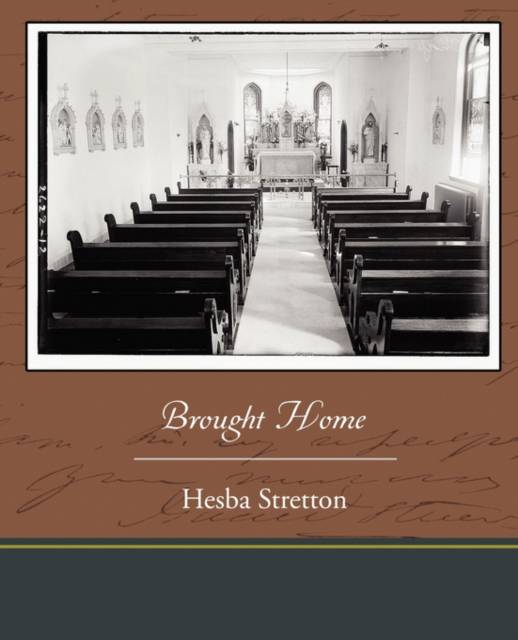
Door een staking bij bpost kan je online bestelling op dit moment iets langer onderweg zijn dan voorzien. Dringend iets nodig? Onze winkels ontvangen jou met open armen!
- Afhalen na 1 uur in een winkel met voorraad
- Gratis thuislevering in België vanaf € 30
- Ruim aanbod met 7 miljoen producten
Door een staking bij bpost kan je online bestelling op dit moment iets langer onderweg zijn dan voorzien. Dringend iets nodig? Onze winkels ontvangen jou met open armen!
- Afhalen na 1 uur in een winkel met voorraad
- Gratis thuislevering in België vanaf € 30
- Ruim aanbod met 7 miljoen producten
Zoeken
Omschrijving
Hesba Stretton (1832-1911) was the pseudonym of Sarah Smith, an English author of children's literature. She is considered one of the most popular Evangelical writers in the nineteenth century. Her moral tales and semi-religious stories, chiefly for the young, were printed in huge quantities, and were widespread as school and Sunday school prizes. She used her Christian principles as a protest against specific social evils in her children's books. An excerpt reads, "Mrs., Bolton could not escape her share of these troubles; though she never accused herself for a moment as having had any part in causing them. It was the archdeacon who had obtained the living of Upton for her favorite nephew; and she had settled there to be the patroness of every good thing in the parish. Mr. Chantrey's popularity had been a source of great satisfaction and self-applause to her. She had foreseen how useful he would be; what a shining light in this somewhat dark corner of the church. The increasing congregations, and the number of carriages at the church-door, had given her much pleasure."
Specificaties
Betrokkenen
- Auteur(s):
- Uitgeverij:
Inhoud
- Aantal bladzijden:
- 92
- Taal:
- Engels
Eigenschappen
- Productcode (EAN):
- 9781438594194
- Verschijningsdatum:
- 22/04/2010
- Uitvoering:
- Paperback
- Formaat:
- Trade paperback (VS)
- Afmetingen:
- 190 mm x 235 mm
- Gewicht:
- 172 g

Alleen bij Standaard Boekhandel
+ 35 punten op je klantenkaart van Standaard Boekhandel
Beoordelingen
We publiceren alleen reviews die voldoen aan de voorwaarden voor reviews. Bekijk onze voorwaarden voor reviews.











